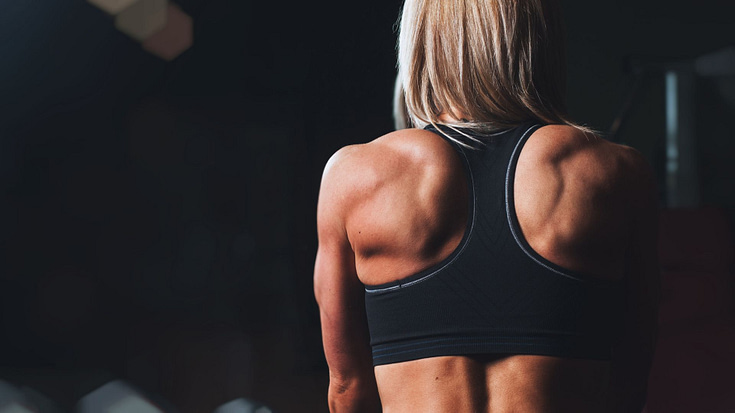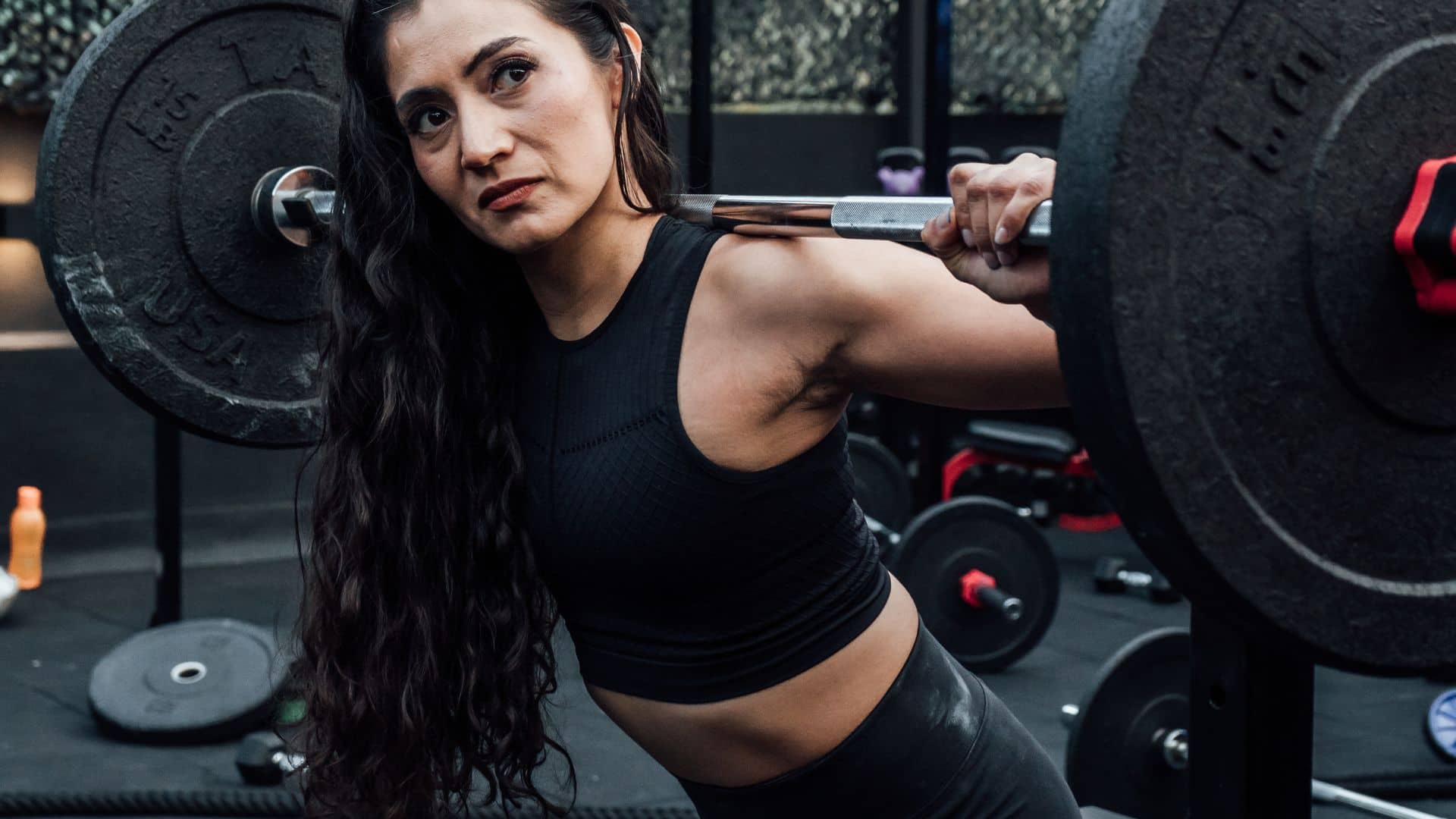Yes, squats can get easier over time. Here are five reasons why: muscle adaptation, the more you squat, the more your muscles will adapt to the movement, making it less challenging over time, improved technique, increased strength, greater flexibility, and cardiovascular endurance.
Muscle adaptation.
Muscle adaptation occurs when your muscles respond to the stress of an exercise by becoming stronger and more efficient at performing that exercise.
When you first start squatting, it may feel difficult because your muscles are not used to the movement.
However, as you continue to squat regularly, your muscles will adapt to the stress of the exercise and become more efficient at performing it.
This means that over time, squats will feel less challenging because your muscles are better equipped to handle the movement.
Essentially, your muscles become more familiar with the exercise and are able to perform it with less effort.
This is why consistent exercise is important for making progress and improving your fitness level.

Improved technique.
One of the primary reasons why squats can get easier over time is improved technique.
Squatting with proper form can help you engage the right muscles, reduce your risk of injury, and improve your overall efficiency and power.
As you become more familiar with the proper squatting technique, you’ll be able to perform the exercise with greater ease and confidence.
This means that you’ll be able to lift more weight, perform more repetitions, and experience less fatigue and discomfort during and after your workouts.
To improve your squatting technique, it’s important to focus on key elements such as your foot placement, hip and knee alignment, back and core position, and breathing.
By practicing these elements consistently and seeking feedback from a qualified trainer or coach, you can refine your technique and make squats feel more natural and comfortable.
Video related here- perfect beginnners squat form ^ ^
Increase strength
Squatting regularly can help build strength in your legs and core, which can make it easier to perform the exercise.
Squats are a compound exercise that work multiple muscle groups, including the quadriceps, hamstrings, glutes, and core.
By performing squats regularly, you can increase the strength of these muscles, which can make it easier to perform the exercise with proper form and without feeling as fatigued.
Stronger leg muscles can also improve your overall mobility, balance, and stability, which can make it easier to perform daily activities, sports, and other exercises.
In addition, a strong core is essential for maintaining good posture and preventing lower back pain. Squats can help build core strength by engaging the muscles in your abdomen and lower back to stabilize your body during the exercise.
Overall, building strength through regularly performing squats can make the exercise feel less challenging over time.
As your muscles become stronger, you’ll be able to perform the exercise with greater ease and potentially even increase the weight you’re lifting.
Greater flexibility.
Consistently performing squats can indeed improve your flexibility, which can make it easier to perform the exercise with greater ease. Squats require a good range of motion in the hips, knees, and ankles, and regular practice can help improve flexibility in these areas.
When you perform squats, the muscles in your legs, hips, and lower back are stretched and contracted, which can help improve overall flexibility. This can be especially beneficial for people who sit for extended periods of time, as sitting can cause tightness in these areas.
In addition, incorporating other exercises that focus on flexibility, such as yoga or stretching, can also help improve your overall flexibility and make it easier to perform squats with proper form.
Overall, improved flexibility through consistent squatting can help make the exercise feel less challenging and reduce the risk of injury by allowing you to achieve proper form without unnecessary strain on your muscles and joints.
Cardiovascular endurance
Yes, that’s correct! Squats can be an effective cardiovascular exercise, and as your cardiovascular endurance improves, squats may feel less challenging.
While squats are often thought of as a strength training exercise, they can also be performed in a way that elevates your heart rate and challenges your cardiovascular system.
One way to make squats more cardiovascular in nature is to perform them as part of a high-intensity interval training (HIIT) workout.
This involves performing intervals of high-intensity squats followed by periods of rest or low-intensity exercise.
This type of training can improve cardiovascular endurance by challenging your heart and lungs to work harder and adapt to the demands of the exercise.
As your cardiovascular endurance improves through regular exercise, you may find that squats become easier to perform.
This is because your body is better able to recover from the exertion of the exercise and your heart and lungs are better equipped to supply oxygen and nutrients to your muscles during the exercise.
incorporating squats into your cardiovascular exercise routine can be a great way to improve your cardiovascular endurance and make the exercise feel less challenging over time.
Here is the chart table with 25 reasons and explanations:
| # |
Reasons |
Explanation |
|---|---|---|
| 1 | Improved Technique | As you continue to do squats, you will become more skilled at the movement, leading to better form and less difficulty. Focusing on proper technique and form can help you perform the exercise more efficiently and with less effort. |
| 2 | Increased Strength | Squats are a compound movement that work multiple muscle groups, including the legs, glutes, and core. As these muscles become stronger, squats will feel less challenging. Consistently challenging yourself with heavier weights or more reps can help build strength and make squats feel easier. |
| 3 | Greater Endurance | The more you do squats, the more your body adapts to the exercise, allowing you to perform more reps or sets with less fatigue. Consistently challenging yourself with higher rep ranges or shorter rest periods can help improve your endurance and make squats feel less difficult. |
| 4 | Better Mobility | Squats require a certain level of flexibility and mobility, which can improve over time with consistent practice. This can make the movement feel easier and more comfortable. Incorporating stretching and mobility exercises into your routine can help improve your range of motion and make squats feel easier. |
| 5 | Proper Warm-up | Warming up properly before squatting can help prepare your body for the movement, making it feel less difficult. Incorporating dynamic stretches and activation exercises into your routine can help activate the correct muscle groups and prevent injury. |
| 6 | Reduced Bodyweight | If you lose weight or body fat, squats may feel easier as there is less resistance to move. Consistently following a healthy diet and exercise routine can help you lose weight and make squats feel easier. |
| 7 | Improved Mental Toughness | Consistently challenging yourself with squats can improve your mental toughness and make the exercise feel less daunting. Believing in yourself and pushing through mental barriers can help make squats feel easier. |
| 8 | Proper Recovery | Adequate rest and recovery between squat sessions can help prevent fatigue and make the movement feel easier. Incorporating active recovery exercises and foam rolling into your routine can help prevent soreness and make squatting feel easier. |
| 9 | Consistency | Regularly incorporating squats into your fitness routine can lead to better performance and less difficulty over time. Consistently challenging yourself with squats can help improve your strength, endurance, and technique, making the movement feel easier. |
| 10 | Progression | Gradually increasing the weight or difficulty of your squat routine can help you adapt and make the movement feel easier. Slowly progressing your weight or adding in new variations can help challenge your muscles and prevent plateaus. |
| 11 | Variations | Incorporating different types of squats, such as front squats or goblet squats, can help challenge your muscles in new ways and make the movement feel less repetitive. Adding in variations can also help improve your technique and prevent injury. |
| 12 | Improved Breathing | Proper breathing technique while squatting can help improve your performance and make the movement feel less challenging. Focusing on breathing deeply and exhaling during the upward phase of the movement can help improve your technique and make squats feel easier. |
| 13 | Improved Posture | Consistently doing squats can help improve your posture and alignment, which can make the movement feel easier and more natural. Focusing on keeping your chest up and shoulders back can help improve your posture and make squats feel easier. |
| 14 | Improved Balance | Squats require a certain level of balance and stability, which can improve over time with consistent practice. Incorporating balance exercises and single-leg movements into your routine can help improve your balance and make squats feel easier. |
| 15 | Improved Coordination | Squats involve multiple muscle groups working together, which can improve your overall coordination and make the movement feel easier. Consistently challenging yourself with squats can help improve your coordination and make the movement feel more natural. |
| 16 | Improved Confidence | As you become more comfortable and confident with squatting, the movement can feel less intimidating and easier to perform. Consistently challenging yourself with squats and pushing through mental barriers can help improve your confidence and make the movement feel easier. |
| 17 | Proper Footwear | Wearing proper footwear with good support and stability can help you maintain proper form and make squats feel easier. Investing in a good pair of squat shoes or cross-training shoes can help improve your technique and make squats feel easier. |
| 18 | Proper Nutrition | Proper nutrition and hydration can help fuel your body and prevent fatigue during squatting, making the movement feel easier. Eating a balanced diet and staying hydrated can help improve your performance and make squats feel easier. |
| 19 | Reduced Stress | Squats can be a stress-relieving exercise, which can help you feel more relaxed and make the movement feel easier. Consistently challenging yourself with squats can help improve your mental health and make the movement feel more enjoyable. |
| 20 | Improved Recovery | Proper recovery practices, such as stretching and foam rolling, can help prevent soreness and make squatting feel easier. Incorporating active recovery exercises and taking rest days can help improve your recovery and make squats feel easier. |
| 21 | Improved Flexibility | Consistently doing squats can help improve your flexibility, which can make the movement feel less challenging. Incorporating stretching and mobility exercises into your routine can help improve your range of motion and make squats feel easier. |
| 22 | Improved Muscle Activation | Proper form and technique during squats can help activate the correct muscle groups |
In conclusion, while squats may seem difficult or intimidating at first, there are many reasons why they can get easier with consistent practice and dedication.
Improving technique, building strength and endurance, incorporating variations and progressions, and focusing on proper recovery and nutrition are just some of the ways to make squats feel easier over time.
By consistently challenging yourself and pushing through mental barriers, you can improve your confidence and make squatting feel more natural and enjoyable.
So don’t get discouraged if squats feel challenging at first – with patience and consistency, you can make progress and achieve your fitness goals.

Hey there, it’s Mike Rrsq, the Editor-in-Chief over at Jsquat.com, and I’m absolutely obsessed with all things squat fitness! I’ve been lucky enough to get some serious recognition for my work in this field. With a solid background in the fitness and wellness industry, I’ve been there right from the get-go, helping shape this website into what it is today.
You see, I’m not just the boss around here; I’m also a passionate contributor. I love sharing my insights through my articles, and trust me, they’re not your run-of-the-mill stuff. Each piece I write is a labor of love, filled with my expertise and real-world experience in the fitness universe. So, if you’re into fitness and looking for some inspiration, you’re in the right place!


